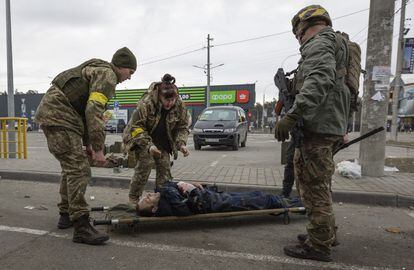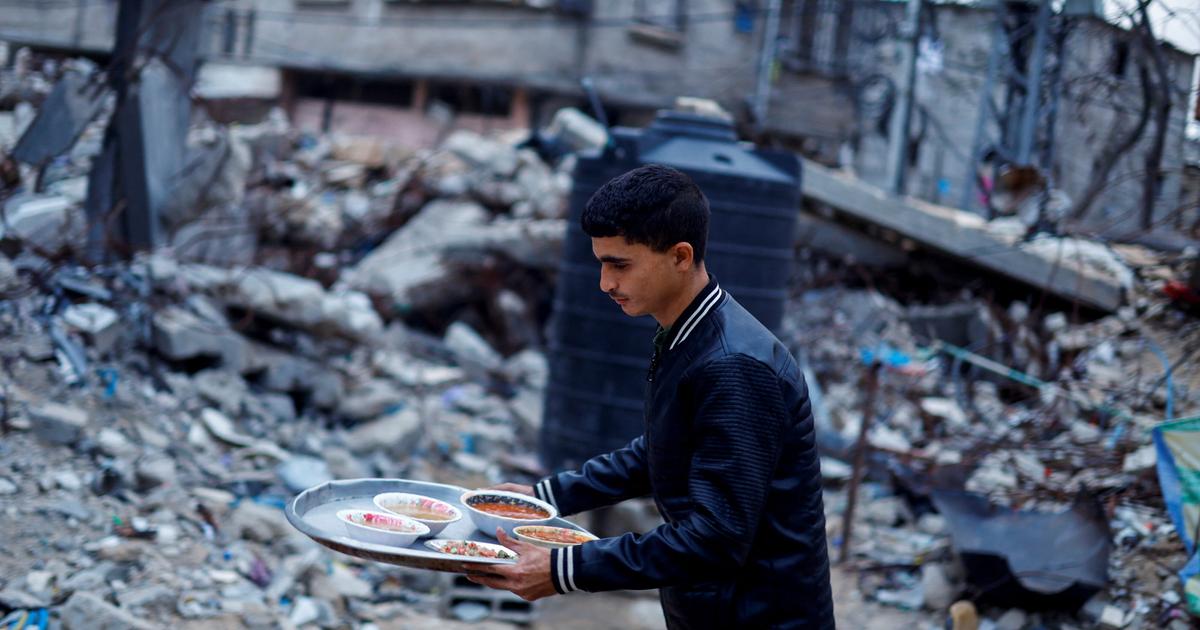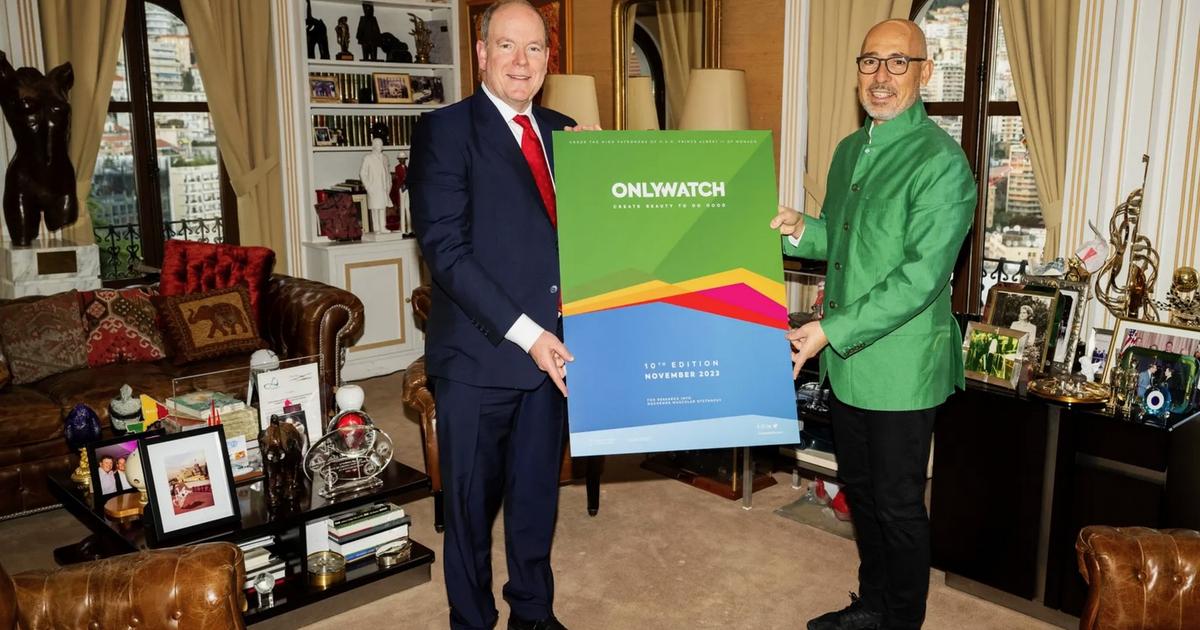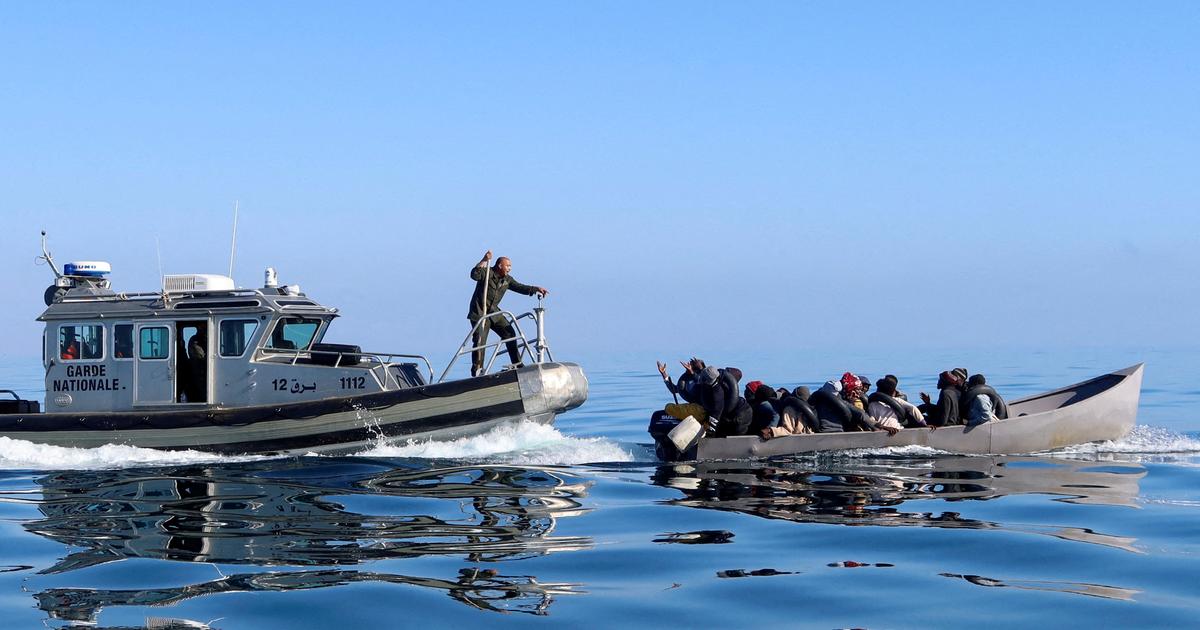Ukrainian soldiers help a wounded man in Irpin, near Kiev. Andriy Dubchak (AP)
It is already ancient history how we have allowed the great titans of data to grow without control under the unquestionable mantra that technological development is not only good, but that it is a categorical imperative.
Technology is presented to us as a fact of God, a tsunami that overwhelms us relentlessly, and not as what it often is: the latest idea of a protracted teenager who has been given so much money to carry out his idea that he believes that everything that constricts her is something obsolete that has to die for the mere fact that it opposes her will.
Centuries of evolution of rights and struggles to get them settled by the tantrum of a founder.
Perhaps this is the case of Hoan Ton-That, Australian computer scientist, model, descendant of the Vietnamese royal family on his father's side — or so he says in his own profile — and founder of Clairview IA, one of the most controversial applications ( and that is to say) in recent years.
Clairview is presented as a database of images collected without the consent of their owners, which uses a "bias-free" artificial intelligence algorithm that allows security forces to accurately find any face among the three billion images. that you have collected from the public Internet.
If they have ever taken a photo of you and uploaded it to Facebook, if you have provided it for that conference you gave in Cuenca or someone has recorded you in the auditorium where you were,
Like all technologies designed with disregard for ethical principles and applicable legality, they sell it to us with the mantra that it is only used for good, even for the supreme good of protecting society from the scum that is dedicated to trafficking in persons and crimes against children Who could not agree with such a noble motive achieved with the wrong means?
The thinker Jeremy Bentham would tell me that this tool creates more social happiness than it destroys, and that the affected individuals are well destroyed.
But like any model that ignores human dignity and the principles and rights that emanate from it, Clairview is not limited to fighting against the most perverse evil, but also allows a very dangerous banal use: to identify almost any human who steps on the earth's surface .
Just take a photo of someone you pass on the street and compare it to the database obtained from Facebook, YouTube, Venmo or any website to find out who it is.
It's a stalker's paradise.
In addition, it allows the law enforcement agencies that use it in the US to do so without the slightest public control and without transparency, which will also be of great joy to those who live happily in police states.
I very much doubt that any state would have dared to do such a thing,
And here comes another unexpected use of Clearview, as an instrument of war.
We have read that the Ukrainian military is contacting the mothers of dead Russian soldiers whom they identify using Clearview AI's facial recognition tool.
The Ukrainian IT Army, a volunteer force of activists and hackers, has conducted more than 8,600 searches and told the families of 582 Russians that their sons, husbands or fathers had died.
In some cases, they even sent photos of the Russian corpses.
It is undeniable that the Ukrainians have not invented the use of the dead during a conflict as another weapon of war — and, let's face it, if this practice had been carried out by Putin's army, the whole world would have screamed in heaven — , but human dignity does not end when we die or when we fight on the wrong side, or at least that is how it is recognized in our legal system.
It seems counterintuitive to expect humanity in a war, the maximum expression of human barbarism, or that it be governed by rules aimed at limiting suffering, but these exist and have been disrupted, like everything else, by the appearance of information technologies. information and for its abuse.
After centuries of savage warfare on European soil, the humanitarian law of war, surprisingly enough, brings civilization and rules to armed conflict, which we owe to Henry Dunant, who had the misfortune to be in the Italian city of Solferino on the same day that the Austrian and Franco-Piedmontese armies decided to use it as a battlefield.
The fighting lasted only nine hours, but it gave them time to leave behind more than 5,000 dead, 23,319 wounded and 11,560 prisoners or missing.
The scale of the tragedy was such that, seeing that the contenders themselves lacked the capacity to deal with so much devastation, Dunant himself organized a group of volunteers made up mostly of women and set up field hospitals where he was treated. to the wounded alike,
regardless of which side they belonged to.
That battle and the deep impression it made on Dunant were the seed of the Red Cross and the four Geneva Conventions that regulate the treatment of the wounded, but also of those killed in combat.
Thus, in situations of international and non-international armed conflict, the dead must be respected and protected.
The parties shall record all available information before the burial of the dead with a view to the subsequent identification of the corpses or remains.
And, if identifying the deceased is an obligation of the contenders, as the Ukrainian authorities could answer me, the notification of the fact of their death cannot be used as a weapon to destabilize the opponent, no matter how much they want to do it.
The Geneva Conventions of 1949 and its two Additional Protocols of 1977 establish that since identification is an “obligation of means” that requires the parties to make every possible effort and use all the means at their disposal to that end, they must, however, ,
The difference between civilization and barbarism lies in the law, in those rules that support social pacts and, with all their defects, articulate them and make peaceful coexistence possible, even dignity in war.
Those rules that annoy our Hoan Ton-Thats so much and that have come to stay.
Paloma Llaneza González
is a lawyer, essayist and ikebanaka.
She has a degree in Law from the Complutense University and a Diploma in Higher European Studies from the College of Europe in Bruges. She has been practicing as a lawyer, auditor and drafter of standards in Spain, Europe and the USA.
She is the author of 'Datanomics' (Planeta-Deusto) and the novel 'Appetite for Risk' (
Libros.com
)
You can follow
EL PAÍS TECNOLOGÍA
on
and
or sign up here to receive our
weekly newsletter
.
Exclusive content for subscribers
read without limits
subscribe
I'm already a subscriber









